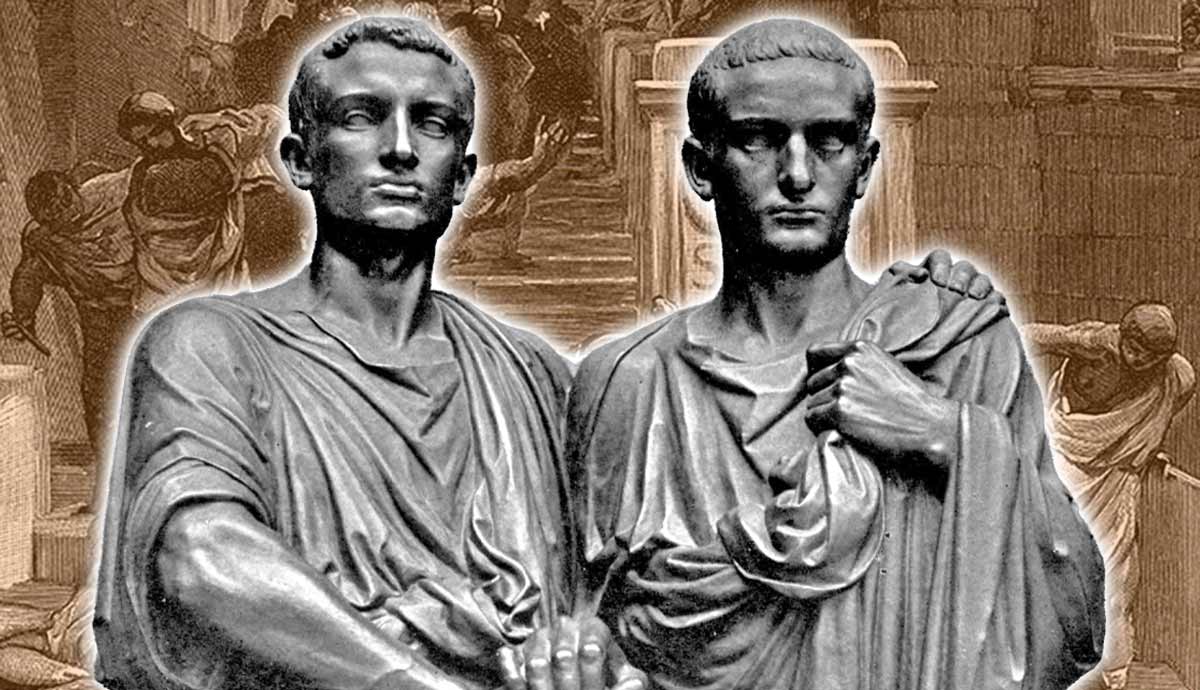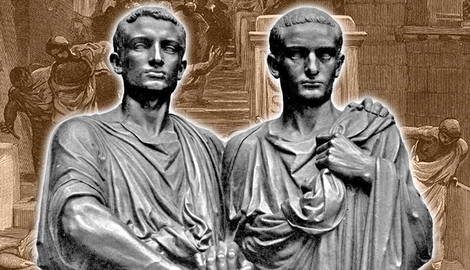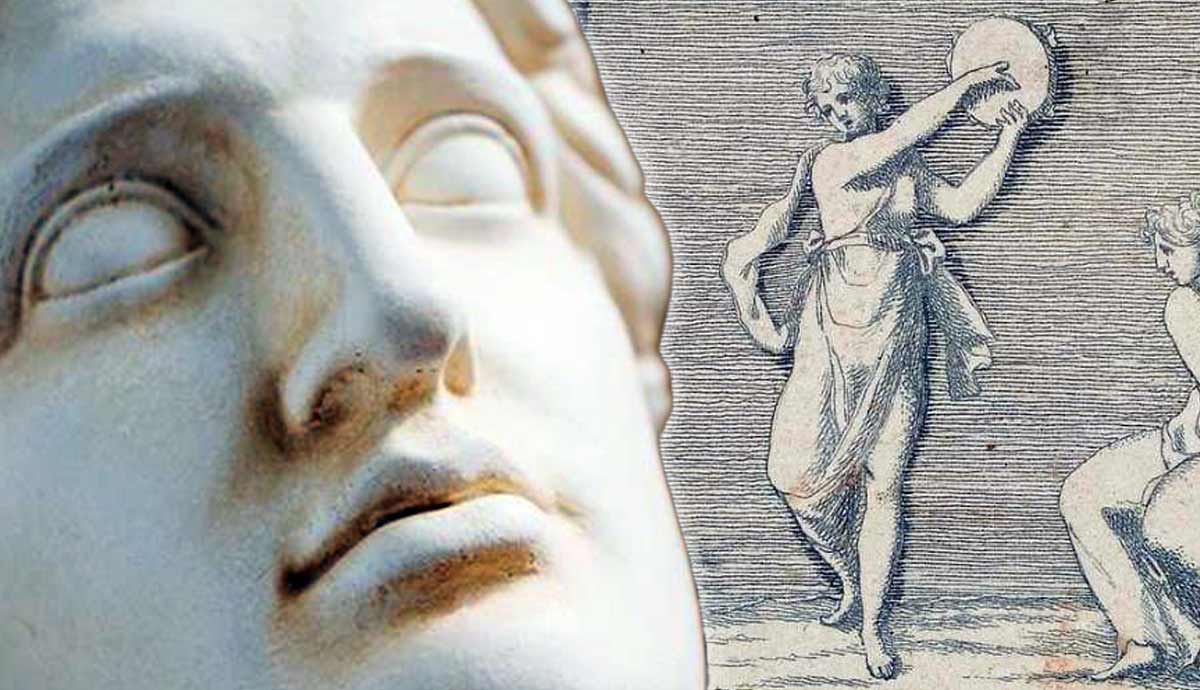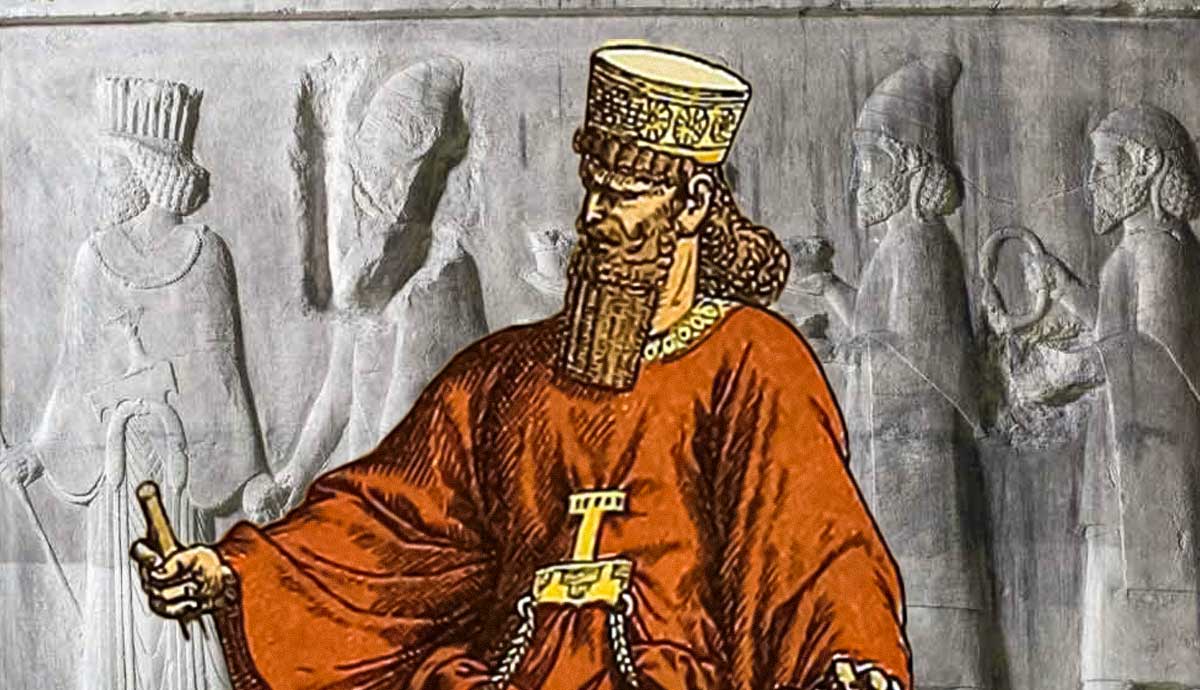
Rivalries between brothers are a recurring motif throughout Roman history. From the bloody struggle between Romulus and Remus during the city’s mythological origins, through to Caracalla’s brutal murder of his brother Geta in the early 3rd century CE, happy families could be rare in Rome. In the late 2nd century BCE, however, two brothers were united by a common political goal: land reform. Although they would meet violent ends at the hands of conservative politicians, Tiberius and Gaius Gracchus had a profound impact on Roman politics during the tumultuous closing decades of the Roman Republic.
Raising Revolutionaries: The Gracchi Family

Although their future political careers would put them in direct conflict with the Roman political aristocracy, the Gracchi brothers had a similarly lofty background. Their father, Tiberius Sempronius Gracchus (c. 220-154 BCE), was a plebeian but was still a member of the most ancient and prestigious families in Rome, the gens Sempronia. His political career, where he reached the rank of consul twice, culminated in his being awarded two triumphs. He was married to Cornelia in 172 BCE. Their marriage was fruitful, but only three of the children survived to adulthood.
Their daughter, Sempronia, was betrothed to Scipio Aemilianus, famous for the final defeat of Carthage in the Third Punic War. The other two children were the brothers Tiberius Gracchus (born c. 163 BCE) and Gaius Gracchus (born c. 154 BCE). In time, the reputation of their father, significant though it was, would be overshadowed by those of his sons, and also his wife Cornelia, who was the daughter of Scipio Africanus, conqueror of Hannibal. Cornelia’s virtuous character, most notably her devotion to her children, saw her lauded in antiquity. She became the first mortal, living woman in ancient Rome to receive the honor of a public statue.
Soldiers of Rome: The Gracchi in the Roman Army

Although neither of the Gracchi brothers would rise to the heights of their father in military matters, both served in the Republic’s army. The older brother, Tiberius, had the more distinguished career of the two. His military career had begun in 147 BCE. Then, he had served as the legatus (a military tribune) during the Third Punic War. Specifically, he played a part in the conquest of Carthage led by Scipio Aemilianus, his brother-in-law. In fact, according to Plutarch’s biography (a much later source), Tiberius Gracchus was one of the first Roman men to scale the walls of Carthage during the siege.
Later, in 137 BCE, Tiberius served as queastor under the consul Gaius Hostilius Mancinus, who at that time was leading the Numantine War, one of the wars of conquest in Hispania. It was a disaster, so much so that Mancius’ forces were surrounded and forced to surrender. It was Tiberius who was dispatched to lead the negotiations. Mancinus might have recognized the value of his quaestor’s ancestor here: his father had been praetor in the region several decades earlier.
Hispania was also the setting for Gaius Gracchus’ military career. He served in the province, under Scipio Aemilianus, in 133 BCE.
The Consequences of Empire: The Republic’s Land Problem

The catalyst for the later political activism (or, antagonism, depending on your perspective) of the Gracchi brothers broadly boiled down to the question of land. Specifically, it focused on the question of ager publicus, or public land. This was the land owned by the state, large quantities of which had been seized during the Republic’s wars of conquest.
The traditional narratives of the problem, as told by Plutarch and Appian, characterized 2nd-century BCE Italy as having vast swathes of the ager publicus that had been taken over by a small number of extraordinarily wealthy landowners. These men ran enormous estates on this land (known as latifundia). These were worked predominantly by slave labor. Not only did this monopolize the wealth of the ager publicus in the hands of a few, but it drove men who would otherwise be farmers into poverty.
This, at least, is the traditional interpretation of the circumstances that drove the Gracchi into careers of political agitation against the aristocratic status quo. Indeed, according to Plutarch, Gaius Gracchus would later write that the scales were removed from the eyes of his older brother while he was campaigning for Rome. Travelling north through the peninsula as he headed to Hispania, Tiberius witnessed the plight of the Roman countryside. However, new research and advances in investigative archaeology over the course of the 20th century have challenged such narratives. Instead, the pressure appears to have been driven by the increased population of Italy at this time. Regardless of the exact cause, the question of land reform was the principal goal of the political careers of the Gracchi brothers.
Tiberius Gracchus: Agrarian Reforms

Tiberius Gracchus was a member of the Roman Plebeian class. This meant that he was eligible to stand for election as Tribune of the Plebs. This magistracy, established in 493 BCE following the succession of the plebs, was one of the most influential in the Roman world. Tribunes had the right to convene the People’s Assembly (the concilium plebis) and to summon the Senate. Tribunes also had the power (the tribunicia potestas) to veto the decision of the Senate and other magistrates. In principle, this was meant to provide a check on any abuses of power by the Roman elite, but it also meant that the tribune wielded significant influence over political debate and action at Rome. For an indication of the magistracy’s influence, consider how Augustus retained his tribunicia potestas, despite giving up other positions and powers when he became emperor.
Tiberius Gracchus was elected as Tribune of the Plebs in 133 BCE, and his agenda focused on agrarian reform. Less favorable commentators, including Cicero, wryly noted that Tiberius was simply canvassing for popular support to obfuscate the embarrassing treaty he had negotiated on Mancinus’ behalf in Hispania. Nevertheless, the proposals Tiberius set out included the establishment of a commission to survey the land owned by the state; a ruling to limit the amount of public land owned by an individual, and the privatisation of remaining land to be distributed to the Roman poor, but not the Italian allies. The lopsided relationship between Rome and her socii would eventually lead to war.

Naturally, Tiberius’ proposals, known as the lex Sempronia Agraria, were not universally popular. The Republic’s wealthy and powerful were, generally speaking, not enamored with rules to curtail their future growth. However, it is important to note that Tiberius did receive support from prominent men in the Republic, including one of the consuls of 133, Publius Mucius Scaevola. But the first serious opposition he encountered was in fact from another Tribune of the Plebs, Marcus Octavius. Tiberius took the unprecedented step of simply having his rival removed from post by a vote of the assembly. This cleared the path for his proposal to be voted through.

Unfortunately, Rome was about to come into possession of a significant inheritance. The ruler of the Attalid Kingdom, Attalus III, had died and, remarkably, bequeathed his kingdom to the Romans. Tiberius Gracchus had big ambitions for that land. His proposals brought the tensions between the reformers and their opponents to a head. To many senators, Tiberius’ actions marked him out as a dangerous demagogue, using his political policies to buy the support of the Roman plebs.
In addition to this, Tiberius’ stated intention of standing for re-election was the catalyst for his downfall. Technically, this would have been illegal because you could not stand for re-election while still in office. On the day of the election, Tiberius seized the Capitoline Hill, possibly to intimidate voters. To his opponents, it simply confirmed Tiberius’ extra-legal political ambitions (in other words, he looked like he was attempting to seize power for himself!). One senator, Publius Cornelius Scipio Nasica, rounded up colleagues and stormed the Capitoline. Tiberius Gracchus and many of his supporters were bludgeoned to death.
Gaius Gracchus: Following Fraternal Footsteps

According to Plutarch, for a while, Gaius Gracchus decided to retreat from the public spotlight. This was sensible, as his brother had acquired powerful enemies. By the mid-120s, however, he began to advance his career. He supported the politics of the consul Marcus Fulvius Flaccus, who aimed to redress the inequalities between Rome and her Italian allies.
Gaius was appointed as questor in Sardinia, where he was tasked with assisting the consul Lucius Aurelius Orestes in quashing a revolt on the island. By the time Gaius was elected tribune of the plebs in 123 BCE, the younger Gracchi had established himself as a prominent and popular figure. He would remain so, serving a second term as tribune in 122 BCE. Unsurprisingly, Gaius declared himself to be a successor to his brother’s political ambitions, but in reality, his reforms were much broader in focus than just land reform.

One of Gaius’ earliest proposals was a law to prohibit any Roman from public office who had already been deposed from a previous role. However, his mother, Cornelia, did convince her son to withdraw this motion. Gaius was not to be dissuaded from his second proposal, which made it illegal for any courts to issue capital punishment that had not first been established by popular approval. This was also an ex post facto law to be applied retrospectively, which compelled a former consul, Publius Popilius Laenas, to go into exile.
Further laws established a maximum price on grain and also reinstated his brother’s land legislation. Gaius’ appeal to a broader base of support than his brother saw his legislation focus on the betterment of circumstances for urban plebs as much as the rural. This included the lex militaris, which ensured that soldiers’ clothing was paid for by the public treasury, as well as reaffirming the minimum age for conscription as 17 years old.

Plutarch describes how Gaius actually had no desire to stand for a second term as tribune. However, such was his popularity that the people spontaneously re-elected the younger Gracchi. In his second term, a law was enacted transferring the jury of the corruption courts, the queastio de repetundis, to the equestrians. Given the relatively high social and political status of members of the equestrian class, this should not be viewed as an attempt by Gaius to democratize the Roman legal system. More generally, it is considered more apt to consider Gaius’s attempted reforms less as an attack on the Senate and Rome’s traditional institutions, and more as an attempt to re-focus them, at least in part, away from the pursuit of private interests.
Gaius’s second term was also shaped by the question of land distribution. Gaius’ proposal, to circumvent escalating tensions with Rome’s Italian allies, was a program of colonization, both in Italy and overseas. This included a colony at the former site of Carthage, which came under the lex Rubria. However, Gaius’s attempts to pass laws extending first citizenship and then rights to the Italian allies were both blocked. These failures testify to the younger Gracchi’s waning popularity over the course of his second term as tribune. His attempt to stand for a third time was unsuccessful.
Another Bloody End

Like his brother, Gaius would meet a violent end. A supporter of the tribune Minucius Rufus, critical of the lex Rubria establishing the Carthage colony, was murdered by the supporters of Gaius. An emergency meeting of the Senate was called, and the consul Lucius Opimius was urged by a Senatus Consultum Ultimum to deal with Gaius.
Upon discovering the intrigue against them, Gaius and his allies barricaded themselves in the Temple of Diana on the Aventine Hill. Opimius and his supporters marched on the temple and slaughtered many of the rebels inside. Gaius appears to have escaped the initial bloodletting but died after escaping across the Tiber. It is unknown whether this was by his own hand or by another. Either way, there was a grisly denouement to his death. Opimius had promised a bounty of gold equal to the weight of Gaius’ head to the man who brought it to him. Lucius Septimuleius, the enterprising individual who returned the skull to the consul, had deviously removed the ex-tribune’s brain and replaced it with lead to boost his bounty!
Assessing the Gracchi: Reform and Violence

How, then, to assess the impact of the Gracchi? Although later societies, including Revolutionary France, would look upon the two brothers as proto-revolutionaries, such assessments are being reconsidered by historians. Aspects of their politics were revolutionary, such as Tiberius’ use of the assemblies to exercise the popular will. This directly challenged the established, entrenched oligarchy. However, other acts, such as Tiberius having political opponents who challenged his proposals removed from office, seem to be examples of corruption.
The leges agrariae, the land reform laws, were ultimately successful and outlived both Gracchi brothers, continuing until 111 BCE. There is evidence to demonstrate the distribution of land to the poor. Many of Gaius’ further laws also stuck, such as his reorganization of the law courts and grain subsidies.
The bloody fates of the Gracchi brothers were an ominous warning of what lay ahead for the Republic. Attempts at land re-distribution later in the 2nd century BCE would be a key trigger behind the Social War that pitted Rome against her Italian allies. Worse still, the murders of both Tiberius and Gaius Gracchus within the city opened the doors to further political violence in Rome. The first century would see military strongmen use political force to push through the desired reforms. This would lead to the unravelling of the Roman Republic and the move to imperial rule.










